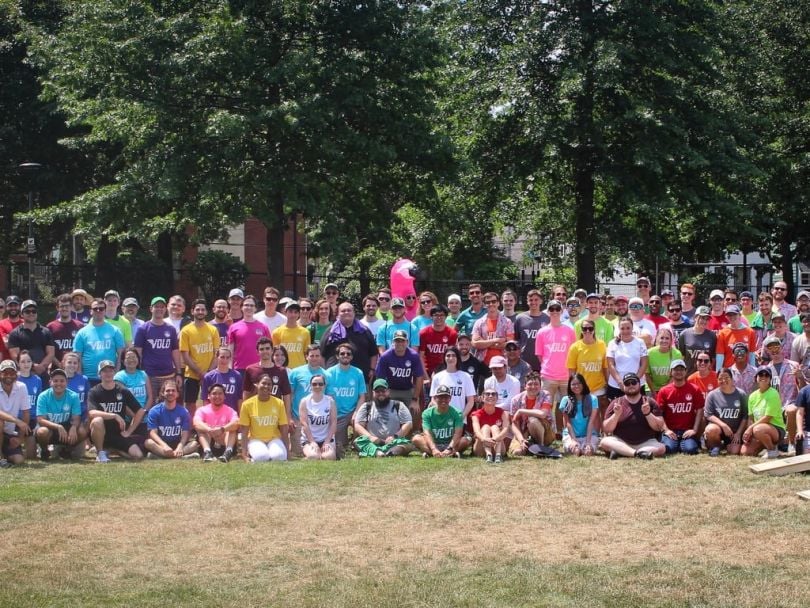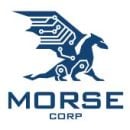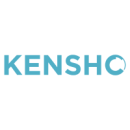When college students register for their next semester of classes, coveted electives seem to be the first courses to fill up.
Whether it’s a low-stress, pass-fail biology lecture or a hands-on ceramics class, having a flexible opportunity to learn something outside of a student’s typical schedule opens the door to fresh ideas, ways of thinking and opportunities to apply outside knowledge to the work in their major. Research even shows that medical students who enroll in electives report greater global satisfaction with their experience — which can contribute to improved academic outcomes.
Companies like MORSE Corp and Kensho Technologies take a similar, well-rounded approach to employee career development. Core cultural features like monthly dedicated learning days and group development programs enhance employees’ professional growth, and — by providing regular learning opportunities — they give employees a stronger sense of belonging. According to LinkedIn Learning’s 2024 Workplace Learning Report, most employees say learning adds purpose to their work and makes them feel more connected to their organization.
Built In Boston spoke with team members from MORSE Corp and Kensho Technologies about the culture of learning and professional development at each of these currently hiring companies.
MORSE Corp develops practical solutions to solve multidisciplinary problems in the U.S. National Security ecosystem.
If you were to describe MORSE Corp’s culture in one word, what would it be, and why?
Unrivaled. At every company, there is always a percentage of high-performing employees who go above and beyond or exceed expectations. What I’ve found at MORSE is that I rarely encounter anybody who is not in that population of high performers. Specifically within my talent acquisition team, I get to be surrounded by some of the best on a daily basis.
“I get to be surrounded by some of the best on a daily basis.”
Our organization’s bar for hiring is very high — we target exceptional individuals who resonate with our mission and values. Throughout the interview process, we vet candidates thoroughly to ensure they are smart, easy to work with, aligned with skills and background and a strong match for our company culture. This high bar certainly makes our jobs tougher within talent acquisition. But what is unrivaled about our group is that we have the tenacity to dig deeply into searches, build strong candidate relationships, properly pitch MORSE and our roles to engage candidates and take the time to land an exceptional hire. Our priority is to continue to grow MORSE’s internal teams, add value and create a strong candidate experience.

How have you developed your career since joining MORSE Corp?
I’ve been at MORSE for four years and have had the pleasure of working with highly intelligent and motivated individuals. MORSE values professional development and opportunities to grow within the organization.
Since we work in a matrix structure, MORSE employees have both a project lead they look to for day-to-day work but additionally have a group leader, or GL. The GL’s role is to focus on professional and personal growth for their team by setting annual goals, frequent one-on-one conversations, advocating for development opportunities and guiding the team's career. What MORSE does well is offering career growth that is not cookie-cutter or title-based. For example, I did not have to hit specific milestones to become a task lead; I became one when the time was right for myself and the team instead. MORSE also offers internal training via the MORSE Institute of Training for newly appointed roles or to build skill sets that are beneficial to the team.
Personally, I experienced significant professional growth when I became a GL in 2023 where I got to observe seasoned managers, learn managerial best practices and expand my interpersonal skills.
Kensho Technologies develops AI and machine learning tools that help customers translate complex financial information into actionable insights.
If you were to describe Kensho Technologies’ culture in one word, what would it be, and why?
Growth. At Kensho, we have one day a month dedicated entirely to knowledge exploration. This means you get a chance to spend all day learning about whatever topic you would like as long as you think it will help you become better at your job. For me, as a frontend software engineer, that has meant creating to-do apps in all the popular and even not-so-popular frontend frameworks, learning about all kinds of paradigms for styling and a myriad of other topics in software development that aren’t necessarily limited to the web. Those chances have been hugely beneficial to me in many instances when something I learned about on those days ends up being the perfect tool to use for a new feature request or problem in my day-to-day application development.
At other companies, getting approval to spend time learning, especially when it isn’t relevant to the current deliverables, is often a hard sell. Either your idea gets tossed into the depths of the backlog never to see the light of day again or you have to carve out some of your own weekend time to do it. I’ve felt empowered to continuously learn about new and better technologies that have in turn made their way into our better software.
“I’ve felt empowered to continuously learn about new and better technologies that have made their way into our software.”
What's the coolest project you've worked on recently? How did it help you grow professionally at Kensho Technologies?
The coolest project I've worked on recently is an ongoing effort to add real-time collaborative editing support to our speech-to-text application, Scribe. Real-time collaborative editing, also called multiplayer editing, has become a standard feature of internet-based applications. This is the first time in my career I've tackled collaborative editing in an application. There are a few popular algorithms out there like operational transformation and conflict-free replicated data types. However, even after wrapping your head around those already complex concepts, fitting one of those algorithms into your own application and data types is still a challenging exercise.
Working on this problem with our team has been an extremely rewarding experience for me. Solving complex problems that we know will be hugely impactful to our users always provides a lot of motivation and satisfaction. I've grown a lot as a developer through learning and applying these and related concepts.









